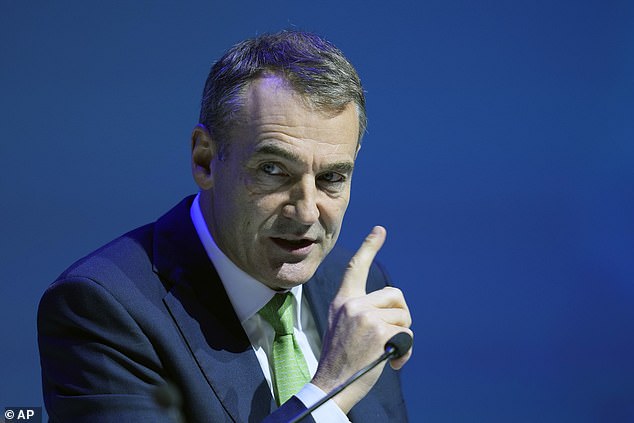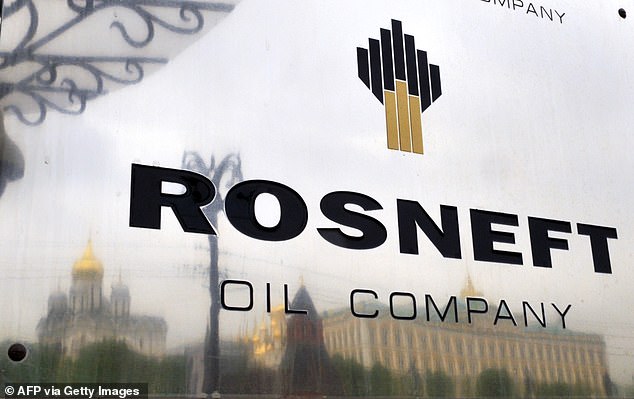The windfall tax has been at the center of discussions about BP for months. But behind closed doors, another scandal is simmering.
The FTSE 100 giant has still not given up its stake in Russian oil giant Rosneft, despite pledging to leave nine months ago.
Activists and politicians attacked it last night for its “business as usual” approach and “shocking” inability to shut down or sell the investment.
BP’s representatives on Rosneft’s board of directors — chief exec Bernard Looney (pictured) and former boss Bob Dudley — stepped down after the invasion of Ukraine
BP told the world it was selling its stake in Rosneft. Instead, it is still involved with a company that finances the Russian war machine.”
Financier turned activist Bill Browder said, “BP is still deeply connected. Surely there is no appetite to leave unless they are forced by external events and embarrassing PR when they didn’t.
‘I can imagine that the Russians don’t make it easy for them. But there’s nothing “shade” about this – they own 19.75 percent of Rosneft, whether they’ve taken the accounting hit or not.

“BP should do what they said they should do and divest from Russia, do nothing that shows support for Vladimir Putin or his murderous war in Ukraine.”
Others have pulled out of Russia, including Shell, which shut down a major gas project called Sakhalin 2. But Morningstar analyst Allen Good said these exits were easier because companies only had to leave individual projects.
The saga comes as oil and gas companies are targeted for a higher windfall tax on profits in the North Sea. Chancellor Jeremy Hunt increased the Energy Profits Levy from 25 percent to 35 percent in the recent mini budget.
It is not clear how much BP will pay. While higher commodity prices boosted revenues, it reported staggering profits of £7.1bn in the three months to September.
BP said: ‘BP’s position is unchanged. In February, we announced our decision to leave Rosneft and other Russian companies. We will continue to pursue this, we have no further comment on progress.’
